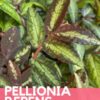Key Takeaways
- Madagascar Jasmine is non-toxic to both cats and dogs, making it a safe choice for pet owners.
- Excessive consumption of any plant material may cause mild gastrointestinal upset in pets.
- This plant thrives in bright, indirect light, balancing both full sun and shade conditions.
- Madagascar Jasmine is a versatile climber, suitable for both indoor and outdoor cultivation.
- The plant emits a sweet fragrance, adding aesthetic and aromatic appeal to any home.
Ensuring Pet Safety with Madagascar Jasmine (Stephanotis)
Creating a safe environment for our furry friends is a top priority for pet owners. Madagascar Jasmine, also known as Stephanotis, offers a perfect blend of beauty and safety. Known for its fragrant white flowers and lush green foliage, this plant is a wonderful addition to any home.
“Stephanotis floribunda (Madagascar Jasmine)” from perkupapp.com and used with no modifications.
Is Madagascar Jasmine Safe for Pets?
When it comes to ensuring pet safety, the ASPCA lists Madagascar Jasmine as non-toxic to both cats and dogs. This means you can enjoy its beauty without worrying about your pets’ health. It’s important to remember that while this plant is safe, moderation is key. Pets are naturally curious and might nibble on leaves or flowers, but excessive consumption can lead to mild discomfort.
Non-Toxic Nature of Stephanotis
“Madagascar Jasmine is considered non-toxic to cats and dogs by major pet poison control centers like the ASPCA.”
The non-toxic nature of Stephanotis makes it an ideal choice for pet-friendly households. This means you can place it in any room without the constant worry of your pet getting sick. Unlike many other houseplants that pose a risk, Madagascar Jasmine stands out as a safe and beautiful option.
In fact, its non-toxic nature is backed by multiple veterinary organizations, which confirm that this plant poses no significant threat to your pets. Therefore, you can confidently introduce Madagascar Jasmine into your home, knowing it won’t harm your furry companions. Additionally, consider the social benefits of pet ownership for seniors, as having plants and pets can enhance their living environment.
Potential Mild Irritation from Excessive Consumption
Even though Madagascar Jasmine is safe for dogs, cats and horses, it’s crucial to monitor your pets. Ingesting large amounts of any plant material can cause mild gastrointestinal upset. Symptoms might include vomiting or diarrhea, but these typically resolve quickly without medical intervention. If you’re concerned about your pet’s health, consider exploring solutions for seniors unable to care for pets to ensure they receive the attention they need.
To minimize the risk of irritation, ensure your pets have plenty of toys and distractions. Training commands and deterrent sprays can also prevent them from chewing on your plants. Remember, prevention is always better than cure when it comes to pet safety.
Ideal Growing Conditions for Madagascar Jasmine
Madagascar Jasmine thrives best in specific growing conditions. Understanding these will not only keep your plant healthy but also ensure a harmonious environment for both your plant and pets.
This plant prefers bright, indirect light. It can tolerate full sun but needs some shade to prevent the leaves from scorching. Therefore, a spot near a window with filtered sunlight is ideal.
Whether you choose to grow it indoors or outdoors, Madagascar Jasmine adapts well. Its climbing habit makes it perfect for trellises or hanging baskets, adding a touch of elegance to your space. Besides that, its sweet fragrance will fill your home with a delightful aroma.
Light Requirements: Full Sun and Shade Balance
Madagascar Jasmine thrives best when it receives a balanced amount of sunlight. It loves bright, indirect light, making it perfect for a spot near a window that gets plenty of natural light. However, be cautious of too much direct sunlight, as it can scorch the leaves and hinder the plant’s growth.
For optimal growth, aim for a location where the plant can bask in the morning sun and enjoy some afternoon shade. This balance mimics its natural habitat and helps the plant produce its fragrant blooms.
If you’re growing Madagascar Jasmine indoors, consider using sheer curtains to diffuse harsh sunlight. Outdoors, planting it under a tree or a pergola can provide the necessary shade during peak sunlight hours.
- Place near a window with filtered sunlight.
- Use sheer curtains indoors to diffuse light.
- Provide afternoon shade if grown outdoors.
Indoor vs. Outdoor Cultivation Tips
Madagascar Jasmine is versatile, thriving both indoors and outdoors with the right care. Indoors, it requires a well-draining potting mix and a container with drainage holes to prevent waterlogging. Regular watering is essential, but ensure the top inch of soil dries out between waterings.
Humidity is crucial for indoor growth. If your home is dry, especially during winter, consider using a humidity tray or a room humidifier to maintain the moisture levels. Misting the leaves occasionally can also help. For more on creating a pet-friendly environment, explore pet socialization tips to introduce your pets to new environments.
Outdoors, Madagascar Jasmine prefers a sheltered spot that protects it from harsh winds. Plant it in fertile, well-draining soil, and ensure it’s supported by a trellis or fence as it climbs. During colder months, if you live in a region with frost, it’s advisable to bring the plant indoors or cover it to protect it from the cold.
“Madagascar Jasmine adapts well to both indoor and outdoor environments, but each setting requires specific care to ensure healthy growth.”
Climbing Habit of Madagascar Jasmine
One of the most charming features of Madagascar Jasmine is its climbing habit. This plant naturally climbs, making it ideal for trellises, fences, or even as a cascading plant in hanging baskets. As it grows, it produces long, twining stems that can reach up to 20 feet in length.
To encourage this growth, provide sturdy support and guide the stems as they climb. Regular pruning helps maintain its shape and encourages more blooms. This climbing nature not only adds vertical interest to your garden but also provides a natural screen or backdrop for other plants.
Benefits of Madagascar Jasmine in Pet-Friendly Homes
Madagascar Jasmine offers numerous benefits beyond its non-toxic nature. Its lush foliage and fragrant flowers enhance the aesthetic appeal of any home, creating a serene and inviting atmosphere. Moreover, the plant is known for its air-purifying properties, helping to remove toxins and improve indoor air quality.
Air Purification and Aesthetic Appeal
Having plants like Madagascar Jasmine in your home contributes to a healthier environment. This plant helps filter pollutants, providing cleaner air for both you and your pets. Its aesthetic appeal is undeniable, with glossy green leaves and star-shaped white flowers that exude a sweet fragrance.
The scent of Madagascar Jasmine is often described as soothing, making it a perfect addition to spaces where relaxation is desired, such as bedrooms or living rooms. Its beauty and fragrance can uplift any space, creating a peaceful oasis within your home.
Conclusion: Creating a Pet-Friendly Environment with Madagascar Jasmine
Incorporating Madagascar Jasmine into your home is a step towards creating a pet-friendly environment that doesn’t compromise on beauty or safety. This plant offers a harmonious blend of aesthetic charm and non-toxicity, making it an ideal choice for households with pets. Additionally, consider exploring solutions for seniors unable to care for pets to ensure a safe and nurturing home for your furry companions.
By understanding its growing requirements and benefits, you can ensure that both your plants and pets thrive together. Remember, a little care goes a long way in maintaining the health of your plants and the safety of your furry friends.
Frequently Asked Questions (FAQ)
Many pet owners have questions about introducing Madagascar Jasmine into their homes, especially regarding its safety and care. Here are some common queries addressed to provide clarity and peace of mind.
Can Madagascar Jasmine thrive indoors with pets around?
Absolutely! Madagascar Jasmine can flourish indoors as long as you provide it with the right conditions. It requires bright, indirect light and a well-draining potting mix. Ensure your pets have distractions to prevent them from nibbling on the plant. Additionally, regular pruning and occasional misting can keep the plant healthy and vibrant. For more insights on the benefits of pet ownership, explore our resources.
It’s important to monitor humidity levels indoors, especially during the dry winter months. A humidity tray or room humidifier can be beneficial. Keeping the plant away from direct airflow from heaters or air conditioners will also help it thrive.
While the plant is non-toxic, it’s always good practice to keep it out of reach from overly curious pets. For more information on plant safety, check out this guide on Madagascar Jasmine. Training your pets and using deterrent sprays can effectively minimize unwanted interactions.
What are the signs of pet irritation from Madagascar Jasmine?
Though Madagascar Jasmine is non-toxic, consuming large amounts of any plant can lead to mild irritation. Signs of gastrointestinal upset in pets may include vomiting, diarrhea, or drooling. These symptoms are generally mild and resolve on their own.
If you notice any of these signs, ensure your pet has access to fresh water and monitor them closely. In most cases, the symptoms are temporary. However, if they persist, consulting a veterinarian is advisable.
How much sunlight does Madagascar Jasmine need?
Madagascar Jasmine thrives in bright, indirect sunlight. It’s important to strike a balance between full sun and shade to prevent leaf scorching. A location that receives morning sunlight and afternoon shade is ideal. For more tips on introducing plants and pets to new environments, check out our guide on pet socialization.
If you’re growing the plant indoors, placing it near a window with filtered sunlight is perfect. Outdoors, ensure it has some protection from the harsh midday sun, possibly by planting it under a tree or using a garden umbrella.
Why is Madagascar Jasmine a good choice for households with pets?
Madagascar Jasmine is an excellent choice for pet-friendly homes because of its non-toxic nature. This ensures your furry friends are safe even if they decide to explore the plant. Its fragrant flowers and lush foliage add beauty and serenity to any space.
Moreover, the plant’s air-purifying properties contribute to a healthier indoor environment. It helps filter out pollutants, providing cleaner air for you and your pets. The sweet scent of its blooms can also create a calming atmosphere, enhancing the overall ambiance of your home.






